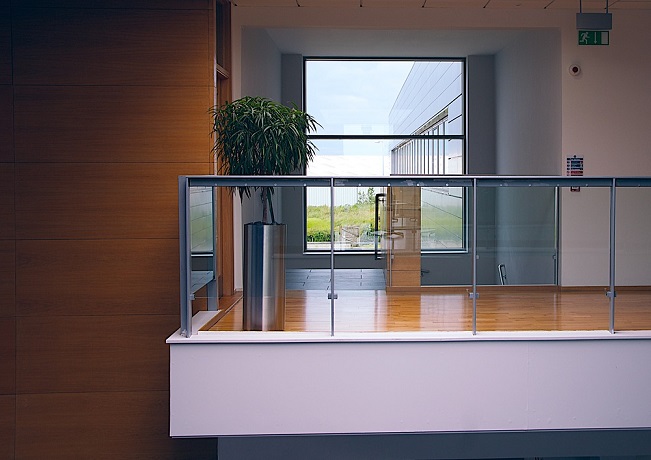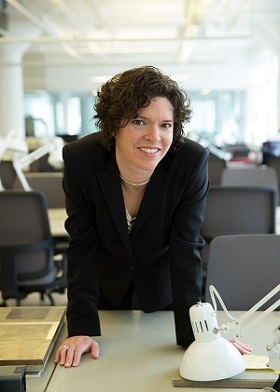As hip and people friendly as many companies are trying to be with their offices today, the truth is that many of us are stuck working in places that aren’t all that great. Displeasing aesthetics, poor environmental conditions, stodgy technology, outdated accommodations… these sorts of factors all take their toll.
Melissa Marsh, founder and executive director of PLASTARC, a social research, workplace innovation, and real estate strategy firm, has a mission to grow awareness of this problem. “There are no neutral spaces,” as Marsh told me during a recent conversation. “Every space will have some impact on the capacity of people to do their work.”
Applying qualitative and quantitative assessments, PLASTARC works with companies to make workplaces better. Her team explores the performance of workplaces based on their ability to deliver on human experience, from physical, policy, and cultural perspectives. While the motivating factors vary, the interest is becoming universal, not limited by industry vertical, company size, or location, said Marsh, who is also senior managing director - occupant experience for Savills, a global real estate services provider.
In heated labor markets such as Atlanta, Austin, Boston, and San Francisco, for example, companies treat the workplace as a means of attracting — and retaining — employees. Financial services firms tend to look at the data when making decisions about their workplaces. Employee wellbeing is often top of mind for healthcare companies and pharmaceuticals, and they study the relationship between the environment and behavior when making workplace decisions. Meantime, philanthropic-oriented organizations updating their workplaces see the importance of spending more money on the mission, less on administrative costs, Marsh explained.
Regardless of their starting point, companies need to think of workplaces as more than just physical spaces, Marsh said. Tools, technology, technical services, policies, procedures, cultural expectations… all of these influence the experience an employee has in a workplace. Optimizing a workplace also takes an understanding of how employees like to work — some crave noise, others silence — and how they’re using existing space and what other types of spaces would be valuable.
A common expectation when heading into a workplace rethink is that the future environment will have a smaller footprint than the current one, Marsh said. A common misconception is that that’s a negative, she added. The truth is, “the things we do at work happen with a lot fewer physical resources than ever before. … Work processes have moved to phones, computers, and mobile devices. We don’t have to have as many physical meetings in order to maintain social interaction in the workplace.”
That’s to say, modern companies can do more with less, and in more sustainable ways, and that’s an advantage, Marsh said.
And, sometimes, the quantity of space isn’t an issue at all. Rather, it’s how the space is divvied up and what’s available in the space. Does a company really need more meeting rooms, or different technology within those rooms? Conversely, do employees really dislike their new video chat apps, or are they simply not going to use them from their desks in an open office? And were those cute little seating areas sprinkled around the office really a waste of money, or does the fact that they’re invariably situated outside senior executive offices have anything to do with why they’re not being used?
I’ll be chatting with Marsh and sharing her insights on WorkSpace Connect on a regular basis — so watch this space for more of her thoughts on the modern workplace. In addition, Marsh will be leading a session on
flexible working practices at our inaugural
WorkSpace Connect Summit, taking place Monday, March 30, as part of the annual Enterprise Connect conference and exhibition in Orlando, Fla. Check out the program
here and get registration information
here.







